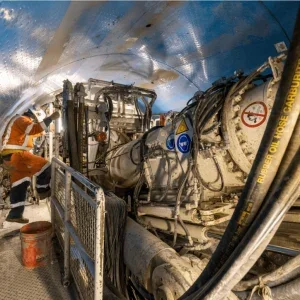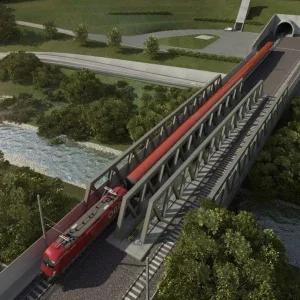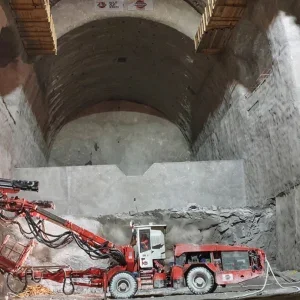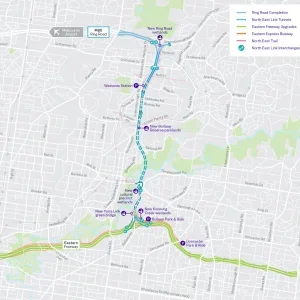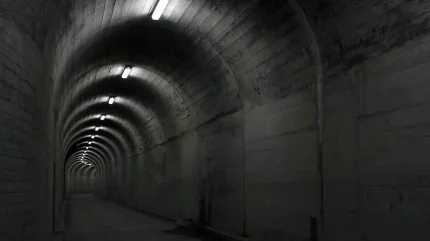
When mark leggett became BTS chair he was given one piece of advice from his predecessor, Roger Bridge. The advice was “clear your diary”. Now at the end of his term, Leggett has finessed this advice, continuing the tradition. His advice to incoming chair Ivor Thomas is “keep focussed”.
“In a sense it is difficult to have just one goal for your term,” says Leggett. “The role is so broad and two years is not long to make significant changes. And yet, looking back on these two years, the BTS has gone through a period of reasonable change. There has been a drive to modernise – and we now store and share BTS information through a web tool called Sharepoint, it doesn’t sound like much but it’s a significant shift for us.
“I think the relationship with the ICE has gone through a state of flux, but it is stronger now. This was an aim of mine. I also wanted to re-established the All Party Parliamentary Group, and that has been successful, which couldn’t have been achieved without ICE help. And another aim was to successfully trial the teacher pack, and the BTSYM has successfully carried that out. The challenge now is to roll it out further.”
CLEAR SKIES AHEAD FOR BRITISH TUNNELLING
Leggett says his views have not changed in the past two years. There is still more money in the pipeline, and more major projects than he can remember in his 28-year career. “There is a lot of talk about Crossrail 2 affordability and what is happening with the Bakerloo Line Extension, while Transport for London (TfL) has uncertainty over its funding and ridership numbers. But it has always been such. We are still looking at 20 years of work and we should be confident in the health of the industry.”
The focus has shifted in the UK, and Leggett says he believes it has to shift, away from London.
“The government has given the North of England an agenda. We have strong mayors, we have conurbations, High Speed 2 is definitely coming, despite mutterings in the press about cost. So there is a shift to the North, and even projects such as the Lower Thames Crossing are related to diverting traffic around London to enable better connections northwards. We are seeing a shift in dynamic.”
Regional activities for the BTS have been on the agenda for a number of years and remain on it, but for the most part these have not yet materialised.
Other major projects include the Stonehenge bypass, York Potash, work relating to Heathrow runway three and the trans-Pennine tunnel, which could see the UK construct the longest road tunnel in the world. POLITICAL SEA CHANGE
In June 2016, a few weeks after Tunnels and Tunnelling interviewed Leggett and his predecessor, Balfour Beatty’s Roger Bridge during their handover, the UK voted to leave the European Union (EU).
An emotive issue for the majority of the British people, much remains unclear regarding the nature of the UK’s relationship with the EU and the rest of the world.
Tunnelling, however, is often said to be resistant to economic and political cycles, and Leggett is inclined to agree.
“My opinion? I don’t think much will happen. People talk about shortages but I doubt it. A number of years ago we had an influx of Irish labour to the industry, while today we have a lot of European labour entering. I think the industry will adapt again, as we have always adapted to these shifts.
“Bob Ibell spoke during his recent Harding Lecture about the possibility of reforming contract and tendering processes, I do not know if this will materialise, but we won’t have the OJEU process anymore, which will be a benefit.
“But we won’t see, for example, Spanish contractors departing the UK and we won’t see severe skills shortages. We will be OK, and we will weather the storm.”
Regarding UK political reactions to Brexit, incoming chair Ivor Thomas of Bam Nuttall has suggested that the country might see significant investment in the North of England. Were there a surge in work demanded, Leggett again does not see a problem. “People have talked about skills shortages for years. When we talk about resource shortage you can look at where these resources are deployed – have we got the right people doing the right tasks?
“Again, Bob Ibell spoke about this during his Harding Lecture and actually if you look in the north, having visited the High Speed Rail College, there is a huge appetite there for people to learn new skills and work in these industries. Thinking of HS2 there is a massive demand for upskilling. I think if we move northwards, the resources are there to be released. We just need to upskill, train and engage.”
On engagement with the political class, Leggett adds, “It can be difficult to engage with parliamentarians. The All Party Parliamentary Group for Infrastructure (APPGI) is one of the success stories of the last couple of years. It had stagnated, but has been reinvigorated. The ICE has built a stronger engagement team and they have put some resources behind it, which is what it needed. From the BTS side, this is being led by Bill Grose and myself.
“Politicians really like site visits, so once we have a few more major projects under construction, we will see more activity here. “I think the government really sees underground space as part of the agenda now. The value of the surface is so great. I did my own rough calculation for Crossrail and the value of the surface space it underpasses is far greater than the per-metre cost of the tunnelling.
“I think that the government sees this now.”
There are a number of UK cities at the tipping point of one million inhabitants – the oft-quoted size at which a city warrants a metro project – and this is also becoming part of the conversation in Britain.
NAVIGATING TROUBLED WATERS
There are challenges facing the BTS and British tunnelling. In project terms, everything runs smoothly once construction begins, but getting through the planning and approvals process can be difficult in the UK, as with any Western industrialised nation. Every major tunnelling project in the UK faced affordability questions, but now many have been successfully completed. Regarding the society, the main challenge is that everyone involved is a volunteer. As a result it often struggles to push things through as fast as it could. “The people involved with the BTS all have day jobs, and I think the industry is not as generous with funding for their staff to get involved with their initiatives. I think that’s the harsh reality. One of my regrets is that we still haven’t published the SCL design guide, but I think we are close. We also need to refresh the BTS Specification for Tunnels, but people are busy with their day jobs.”
Leggett would also like to see more clients become corporate members and support the society, but thinks that the BTS needs to think about what it offers them first.
SAILING INTO THE SUNSET
Now he is immediate past chair, Leggett says the chance of being able to ‘sail into the sunset’ is unlikely.
“You never quite escape from the BTS, I’ve noticed that. But I enjoy being involved, there is a camaraderie. I have a healthy set of responsibilities still; beyond supporting Ivor, I will continue to advise at Warwick University, I am making sure the BTS Conference and Exhibition is successful, and I am involved in the ‘BTS at 50’ anniversary planning.
“One of the things I want to do is move the technical focus ahead more, looking at new projects to do with ICE and industry.
As for a final thought, Leggett praises Roger Bridge.
“I took over in May 2016 and Roger had his stroke that August. Roger and I are great friends and that was hard for both of us – very hard for Roger of course – but hard for the BTS as well, because I did not have him by my side, which was a real loss.
“I’m just so pleased to see him recover so well, and he is a strong support and I really noticed his absence. These things never happen at the right time. It was tough for everyone.
“Welcome back Roger, it’s great to see you looking so well.”



